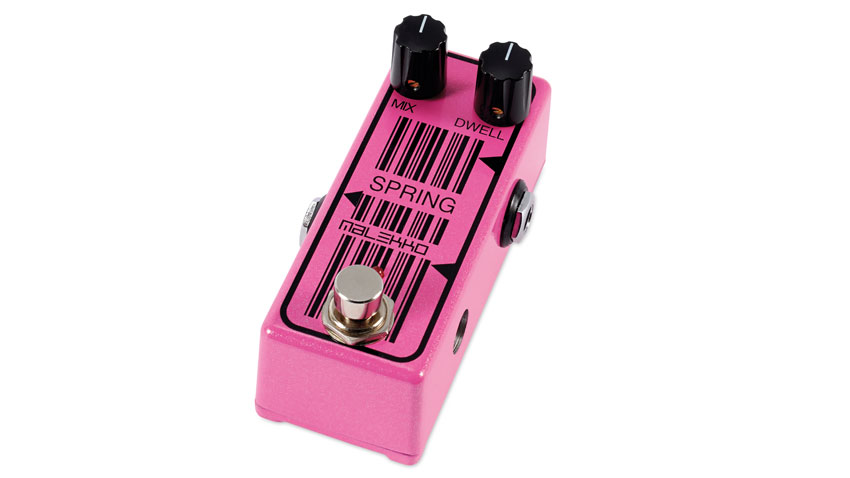MusicRadar Verdict
It's impossible not to like the Spring's time machine tones, but it is niche.
Pros
- +
Retro-billy tones. Ultra-compact size.
Cons
- -
Limited versatility.
MusicRadar's got your back
From splashy surf to Sunday-best Chet Atkins slapback, this dinky reverb pedal from Oregon-based effects-maker Malekko is as retro as they come. It's developed from the company's Chicklet reverb, incorporating a range of small upgrades.
For example, the footswitch has been up-spec'd to banish a slight pop as this buffered effect engages, while the pedal's electronics have been made quieter overall.
A trio of Princeton Technology echo chips handle the spring reverb emulations, although there are no internal trim pots to access wilder settings. The Spring's micro enclosure also means there's no battery, but it'll run off a Boss-style nine- volt power supply just fine.
Sounds
"If you need a do-it-all reverb look elsewhere, but if you're a hep cat who's big on 50s style but short on space it could make a lot of sense"
Plugged in, things couldn't be simpler: the mix knob adjusts the wet/dry balance while dwell adjusts feedback. We use the term advisedly because the Spring has more of a splashy slapback delay character than a true reverb.
With both mix and dwell set at 12 o'clock, you get an Eddie Cochran-style clank and slap that would suit old-time chicken pickin' to a T. Turning up the mix and dwell to full, however, exposes a long tail of ultra-short delays after a splashy attack - perfect for those trashy surf sounds. With dwell at 12 and mix dialled back you get tight, rockabilly reverb.
Want all the hottest music and gear news, reviews, deals, features and more, direct to your inbox? Sign up here.
Jamie Dickson is Editor-in-Chief of Guitarist magazine, Britain's best-selling and longest-running monthly for guitar players. He started his career at the Daily Telegraph in London, where his first assignment was interviewing blue-eyed soul legend Robert Palmer, going on to become a full-time author on music, writing for benchmark references such as 1001 Albums You Must Hear Before You Die and Dorling Kindersley's How To Play Guitar Step By Step. He joined Guitarist in 2011 and since then it has been his privilege to interview everyone from B.B. King to St. Vincent for Guitarist's readers, while sharing insights into scores of historic guitars, from Rory Gallagher's '61 Strat to the first Martin D-28 ever made.

